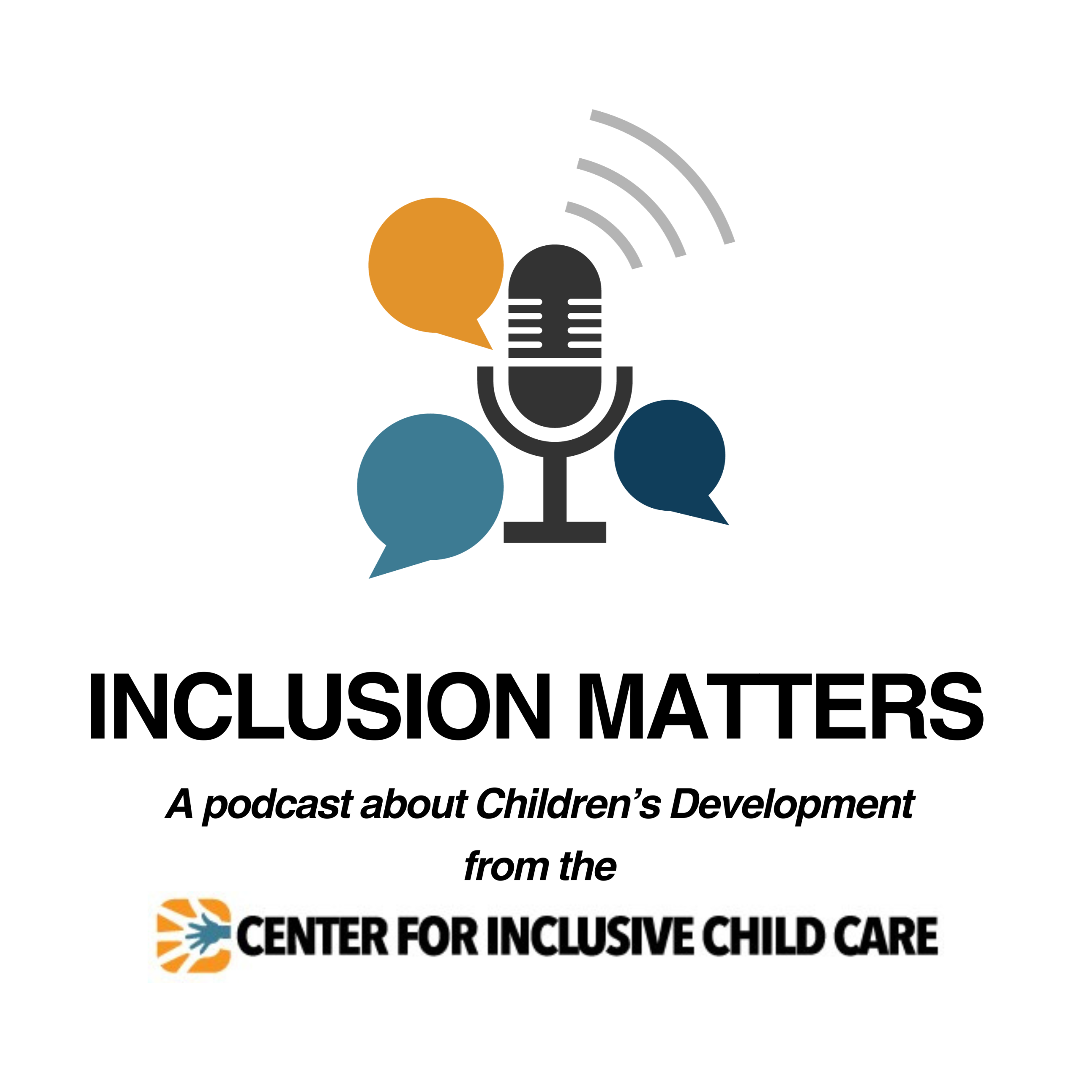Podcast

Inclusion Matters is a podcast produced by CICC. Early childhood experts discuss a wide array of important topics for early childhood professionals.
Inclusion Matters is also available on Spotify, Overcast, Google Podcasts, and Radio Public.
Six Acquired Strengths for Children’s Mental Health--Self Regulation and Affiliation: Part Two
In Part 2 of Dr. Perry’s Six Acquired Strengths, we will discuss the importance of self regulation in preschoolers and its impact on social skill development. These two emotional milestones are essential to a young child’s learning and success now and later in life. You can do much to enhance their mastery of these ‘strengths’!
(Length: 11:37)Six Acquired Strengths for Children’s Mental Health--Attachment: Part One
In this podcast, Cindy Croft and Priscilla Weigel will discuss children’s mental health and Dr. Bruce Perry’s Six Acquired Strengths for emotional development in young children. We begin the discussion with attachment as the foundation for a child’s positive mental health. Listen to discover ways that early educators can build the responsive relationship by tuning in to children.
(Length: 8:28)New Spin on Challenging Behaviors
Cindy Croft and Priscilla Weigel lay out a three-pronged approach for setting staff up for success when it comes to children’s behavior challenges. We know that children experiment with behaviors as a way to grow and learn so preparing for what will inevitably occur is a good tool in preventing staff anxiety when issues arise. We will talk about Plan, Prepare, and Support!
(Length: 14:33)Emotional Sensitivity
Emotional sensitivity is the ease or difficulty with which a child responds emotionally to situations. Some children are very sensitive to what is going around them while others seem oblivious to the feelings or mood of peers. How can we help children learn empathetic skills and also learn about their own feelings and how to express themselves to others? This podcast will look at children’s sensitivity levels and how we as professionals can guide them in their relationships with others.
(Length: 15:39)Activity Level--Children Who Need to Move!
Cindy and Priscilla discuss a temperament trait that is commonly associated with challenging behaviors in early childhood settings: activity level. While we often think first about a child who is really busy, children who have a low activity level need adaptations to the environment as well in order to have successful experiences. Listen to this podcasts for some strategies as you think about children and their movement in your programs.
(Length: 14:13)Intro to Temperaments--How are Children Wired?
We will begin a series of podcasts on the major temperament traits that can relate to challenging behaviors at times. In the first podcast, Cindy Croft and Priscilla Weigel talk about how temperament traits impact each of us as adults including our perceptions and relationships. When we consider children, we need to realize that they also come to us with a unique blend of the 10 temperament traits that influence their interactions with others. The more we understand ourselves and the children we work with, the more likely we will be to avoid some of the challenges that come with the extremes of temperament.
(Length: 14:40)